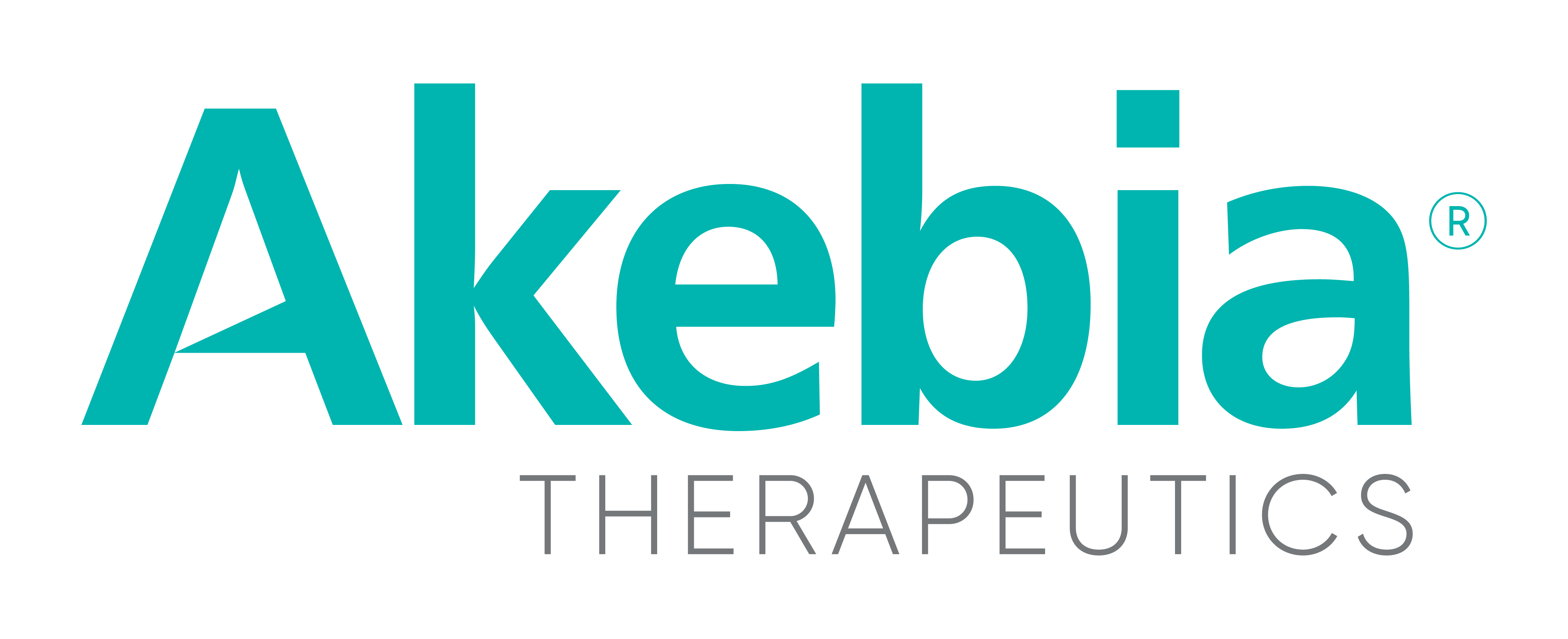Press Release
Akebia Files Lawsuit Against CMS for 2018 Action Rescinding Medicare Part D Coverage of FDA-Approved Auryxia® for its Iron Deficiency Anemia Indication and Imposing a Prior Authorization Requirement for its Hyperphosphatemia Indication
CMS continues to deny
In the complaint, Akebia asks the court to restore coverage of Auryxia for the IDA Indication and to remove the prior authorization requirement for the Hyperphosphatemia Indication.
Auryxia was approved by the
“Together with medical experts and numerous patient advocacy groups, we’ve been working tirelessly over the past year to urge CMS to restore coverage for Auryxia’s IDA indication and remove the prior authorization requirement for the hyperphosphatemia indication. We believe CMS has a legal obligation to restore coverage. Because CMS has failed to act, we find ourselves with no other choice than to pursue litigation seeking to restore access for
For additional information, a copy of the complaint can be found by visiting HERE.
About
About Auryxia® (ferric citrate) Tablets
Auryxia (ferric citrate) was approved by the
IMPORTANT U.S. SAFETY INFORMATION FOR AURYXIA® (ferric citrate) CONTRAINDICATION
AURYXIA® (ferric citrate) is contraindicated in patients with iron overload syndromes, e.g., hemochromatosis.
WARNINGS AND PRECAUTIONS
- Iron Overload: Increases in serum ferritin and transferrin saturation (TSAT) were observed in clinical trials with AURYXIA in patients with chronic kidney disease (CKD) on dialysis treated for hyperphosphatemia, which may lead to excessive elevations in iron stores. Assess iron parameters prior to initiating AURYXIA and monitor while on therapy. Patients receiving concomitant intravenous (IV) iron may require a reduction in dose or discontinuation of IV iron therapy.
- Risk of Overdosage in Children Due to Accidental Ingestion: Accidental ingestion and resulting overdose of iron-containing products is a leading cause of fatal poisoning in children under 6 years of age. Advise patients of the risks to children and to keep AURYXIA out of the reach of children.
ADVERSE REACTIONS
Most common adverse reactions with AURYXIA were:
- Hyperphosphatemia in CKD on Dialysis: Diarrhea (21%), discolored feces (19%), nausea (11%), constipation (8%), vomiting (7%) and cough (6%).
- Iron Deficiency Anemia in CKD Not on Dialysis: Discolored feces (22%), diarrhea (21%), constipation (18%), nausea (10%), abdominal pain (5%) and hyperkalemia (5%).
SPECIFIC POPULATIONS
- Pregnancy and Lactation: There are no available data on AURYXIA use in pregnant women to inform a drug-associated risk of major birth defects and miscarriage. However, an overdose of iron in pregnant women may carry a risk for spontaneous abortion, gestational diabetes and fetal malformation. Data from rat studies have shown the transfer of iron into milk, hence, there is a possibility of infant exposure when AURYXIA is administered to a nursing woman.
To report suspected adverse reactions, contact
Please see full Prescribing Information
Forward-Looking Statements
Statements in this press release regarding Akebia’s strategy, plans, prospects, expectations, beliefs, intentions and goals are forward-looking statements within the meaning of the U.S. Private Securities Litigation Reform Act of 1995, as amended, including but not limited to statements regarding the CMS determination and resulting denial of
View source version on businesswire.com: https://www.businesswire.com/news/home/20191015006126/en/
Source:
Kristen K. Sheppard, Esq
VP, Investor Relations
ir@akebia.com


Akebia Therapeutics, Inc.
245 First Street, Suite 1400
Cambridge, MA 02142
+1 617.871.2098 phone
+1 617.871.2099 fax
